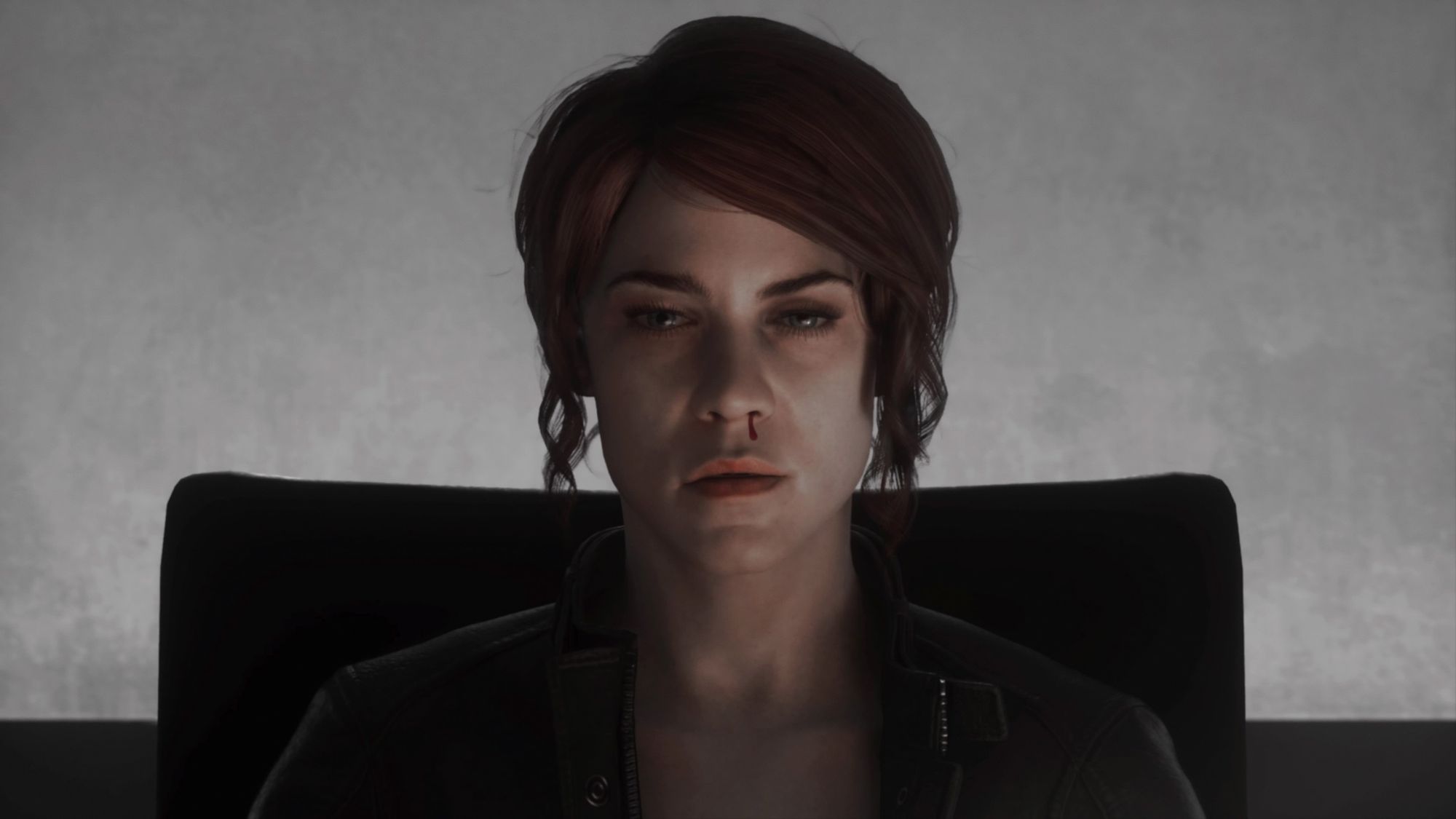Control was a title that took me completely by surprise. I had heard countless sources and people praise it and sing its glory; hell, it was a winner, as well as contender for multiple Best Of / GOTY awards in 2019. So on some level, I knew I was going to enjoy it, but little did I know how it would truly captivate me. This game floored me in a way that I haven't been floored in a very long time. I can't stop thinking about Jesse and the eerie, outlandish world her life is entwined with. The Federal Bureau of Control's (FBC) hallways still idly sit in the back of my mind; the eerie, industrial confinement they exude haunts me in the most thrilling, awe-inspiring way possible. I honestly just want to shout from my rooftop about how much I fell in love playing this game, but instead I'll save the neighbors a migraine and write about it. I just hope my words can do my experience justice.
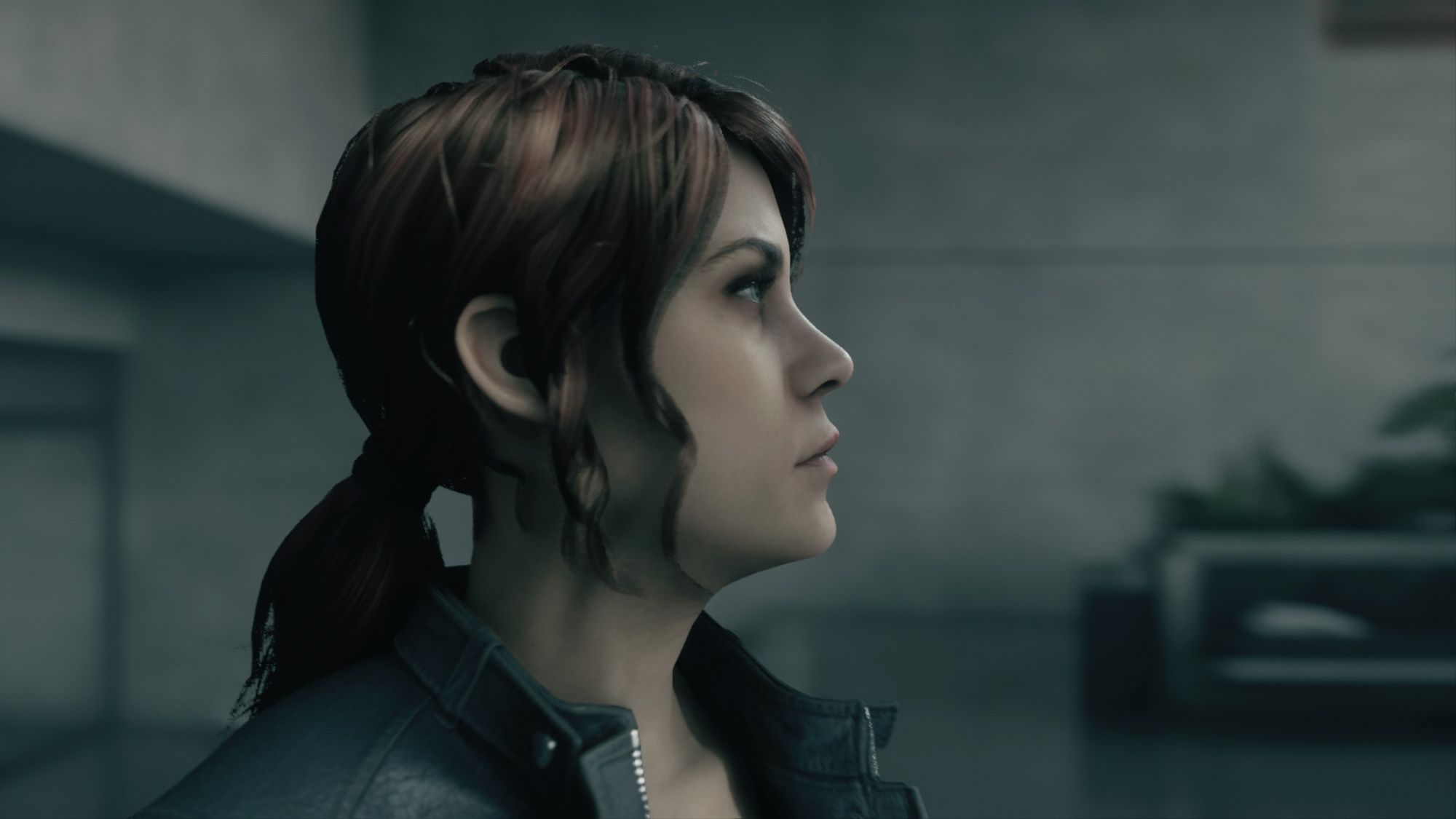
In case you aren't familiar with the plot of Control (like I was when I started playing), you play as Jesse Faden who, after searching most of her life for her brother Dylan, finally finds herself in the Federal Bureau of Control. His disappearance when they were kids is connected to the Bureau and its inner secrets somehow, and she's determined to find him and break it all wide open. Little does she know, there is an otherworldly threat, deemed the Hiss, wreaking havoc in the FBC like a wildfire. Coupled with Altered items running loose (items that are classified to have otherworldly, usually odd but dangerous properties) and the fact that she gets put in charge very quickly, she's got a lot on her plate. As much as she wants to find Dylan, she knows that helping to save the Bureau will be a good start.
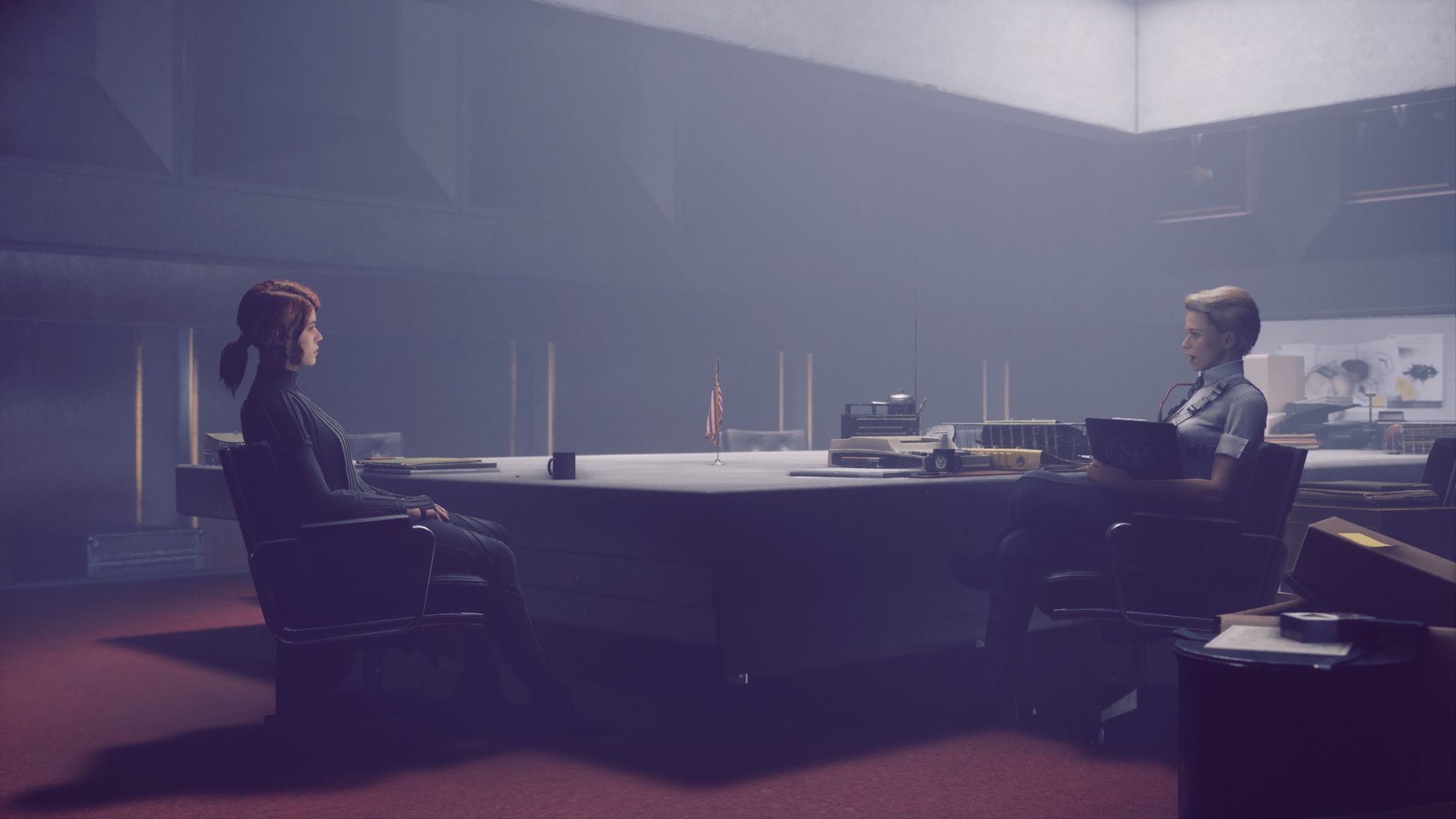
First things first, the world. The atmosphere the game creates throughout the story adds so much to your experience within the Bureau. Even without the threat of the Hiss around every corner, as your story begins you start to understand the true extent the Bureau goes to secure and research so many otherworldly items and phenomena. This is an institution built on the unknown and it never lets you forget that. The ambience throughout your time within the Bureau walls never for a second allows you to think you are safe from danger. Be it the Hiss, or an escaped Altered Item, the halls of that place are filled with the tense air of the unknown, the people who are studying it, and the people who are trying to keep everyone alive. My entire time traversing the corridors never for a moment provided me any psychological respite. Realistically I knew, "I'm standing right next to a fast travel point, no enemies are going to spawn here". Yet there I was, my nerves standing on end as I pulled up my map to see my projected path, the ominous chanting of the lost agents who have succumbed to the Hiss reverberating in the distance as a low hum. Their still bodies levitate high above as you progress, frozen in their state of possession and loss. It does an incredible job of never letting you feel settled. There is always something putting you on edge.
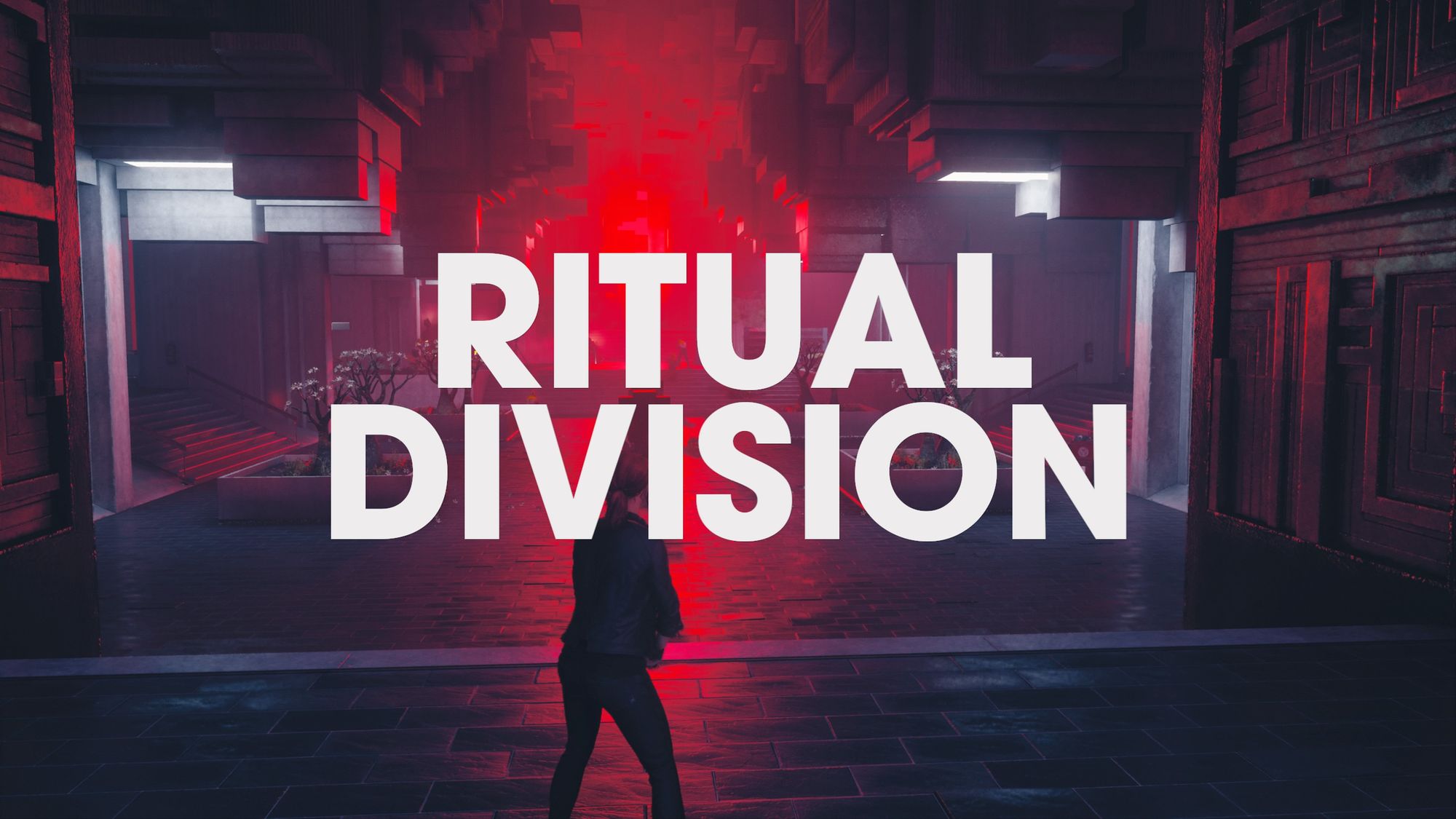
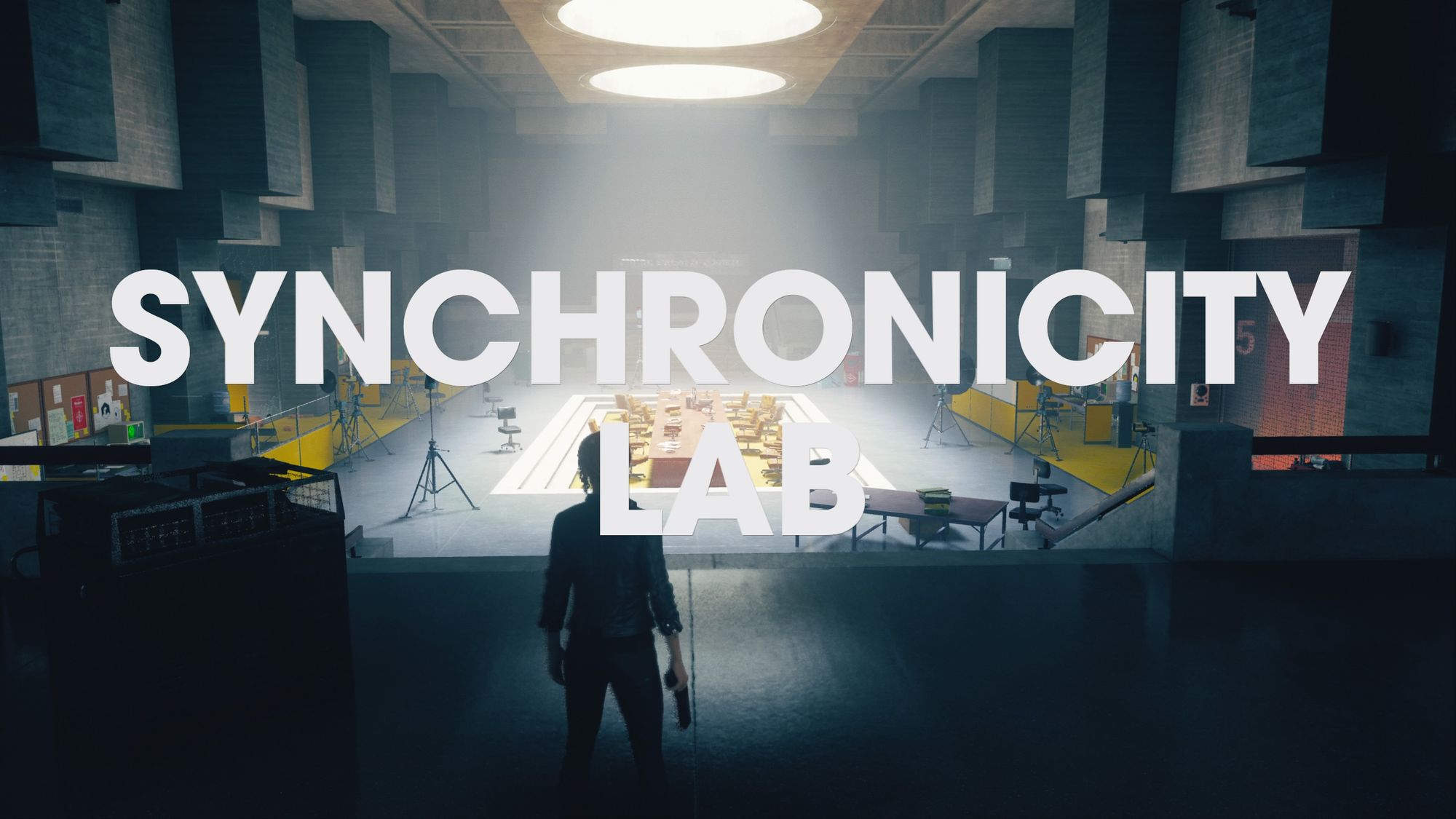
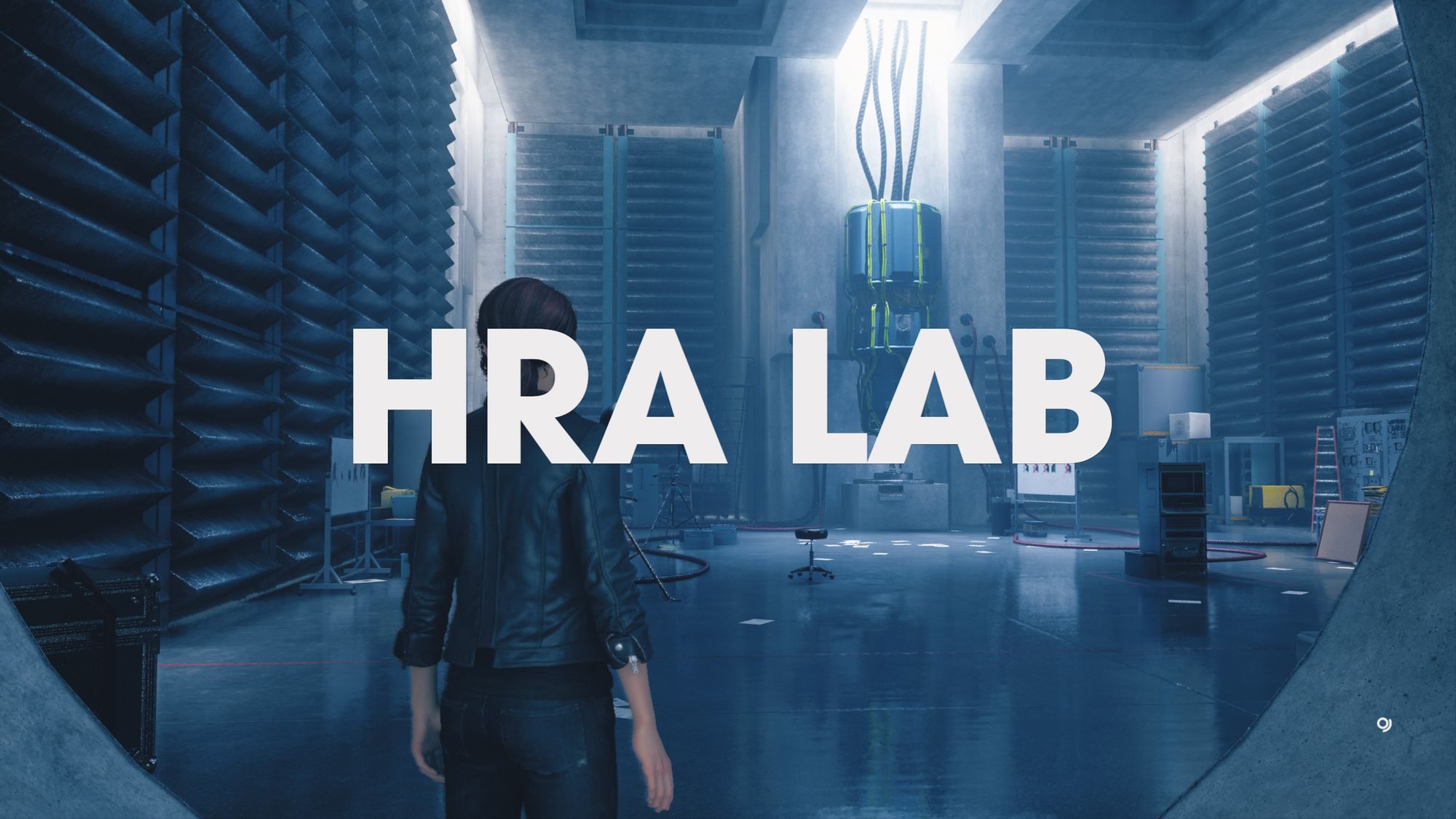
How the Bureau is structured also adds to this. The world walks a delicate line, balancing between vast, open and endless, while being so confined and suffocating. You are in a building, albeit one that is large and carries reality-bending properties. The area within the building's walls transcends the actual square footage out in the civilian world, and the game plays that concept like a beautiful symphony. As the various departments and areas of the Bureau slowly become known to you, it's hard to remember that you're inside one building/location. The way the game introduces key locations helps break out of that "one building" box you'd feel trapped in under normal circumstances. A pitch or key change in music, large, emphatic typography suddenly filling the screen, the way your new location is visually framed as you enter. These cinematic traits help you slowly forget the physical barriers that technically surround you as you go deeper into the Bureau. It helps create a depth of mystery that this story lives and thrives in. The way the internal structure plays with itself too is so clever and makes use of the confined space splendidly. A handful of times I realized that my actions had changed various structures nearby, and as I progressed forward from my triumph within a location, I realized I was back where I had begun, but from a whole new direction and perspective. It would take me a second, because I'd recognize objects and wall structures, before realizing what had happened and be filled with exhilaration. That moment of realizing I had been led in a large circle, or taken through a shortcut, back to a previous point of interest was just so surprising. The level design for this game was crafted so dynamically and with so much detail that even though I ran down countless (somewhat) vacant corridors, nothing ever felt the same. That in combination with the way the levels turned in on themselves, folding, twisting and inverting, it kept the exploration from becoming stagnant.
Now I know clever level design and closed loops like that are nothing new to modern triple A titles but what struck me the most about these kinds of mechanisms within Control was how well it integrated into the narrative and the world that I had been slowly sinking deeper and deeper into. It felt like an ever-looping cycle of the environment catering to the story and vice versa, instilling more depth into both which helped to develop a more profound understanding of the universe within the story.
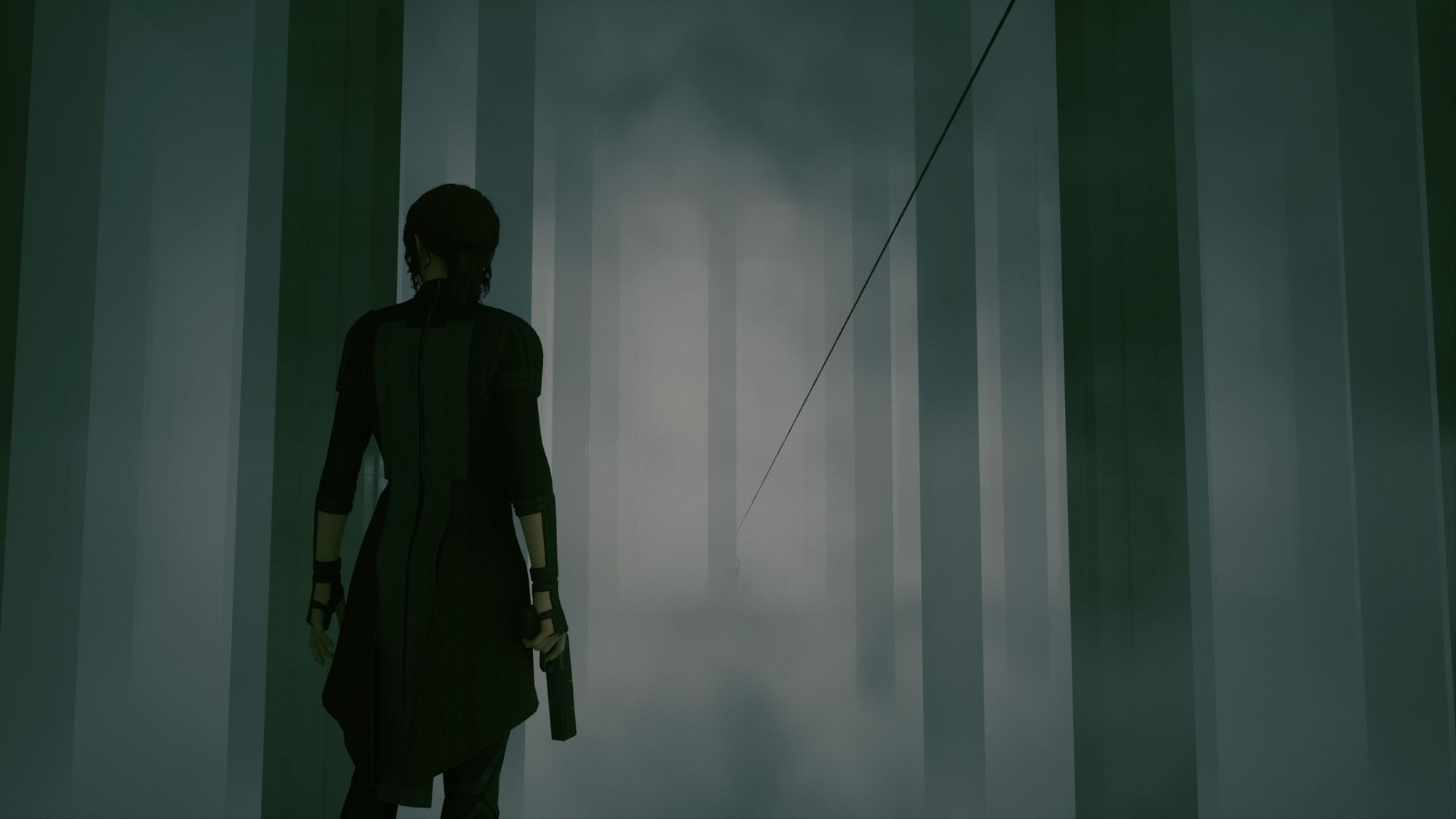
Another thing that stood out to me, is the navigation. Control is not a linear game. You have a large map that only pushes you in a certain direction to advance the plot. It doesn't force you onto the narrative path per se, but some parts are only opened as the narrative progresses and as abilities are learned. The building itself defies every and any laws of physics and dimensionalism in that the physical boundaries of its walls need not apply to its inner dimensions. But when you take away all the science and otherworldly capabilities, it's a building. You are running around a building. A building that is staffed by hundreds, if not thousands of people, who work in vastly different departments that require vastly different things. That being said, people have to know where to go! And in order for them to get where they're going, it's simple - you follow the signs. And that's mostly what I did! You do have access at any point to a building-schematic style map that highlights main areas of interest, but I found as I was progressing through the story and making my way through the various floors and sectors, I did what any newbie on the job would do, and followed the in-game sign prompts. There were even times when following them made more sense that looking at my schematics. This was something that just took me by surprise. How well done and realistic the in-building navigation was, they really did their research and paid attention to these details. I appreciated how well executed this simple, and even mundane detail was, and it worked so nicely in immersing me into the environment and took away from the trivial pursuit of just running from one marker to another. I found myself countless times, getting turned around and saying to myself "Ok, I'm here. Let's check out where this hallway goes, or where this door will lead", placing myself in Jesse's shoes to make sense of the ever convoluted passages I'd been trekking through. It was a great immersion tactic that helped the walls of the Bureau feel just a little bit more real, amongst all the bat shit crazy stuff that was going on inside it.
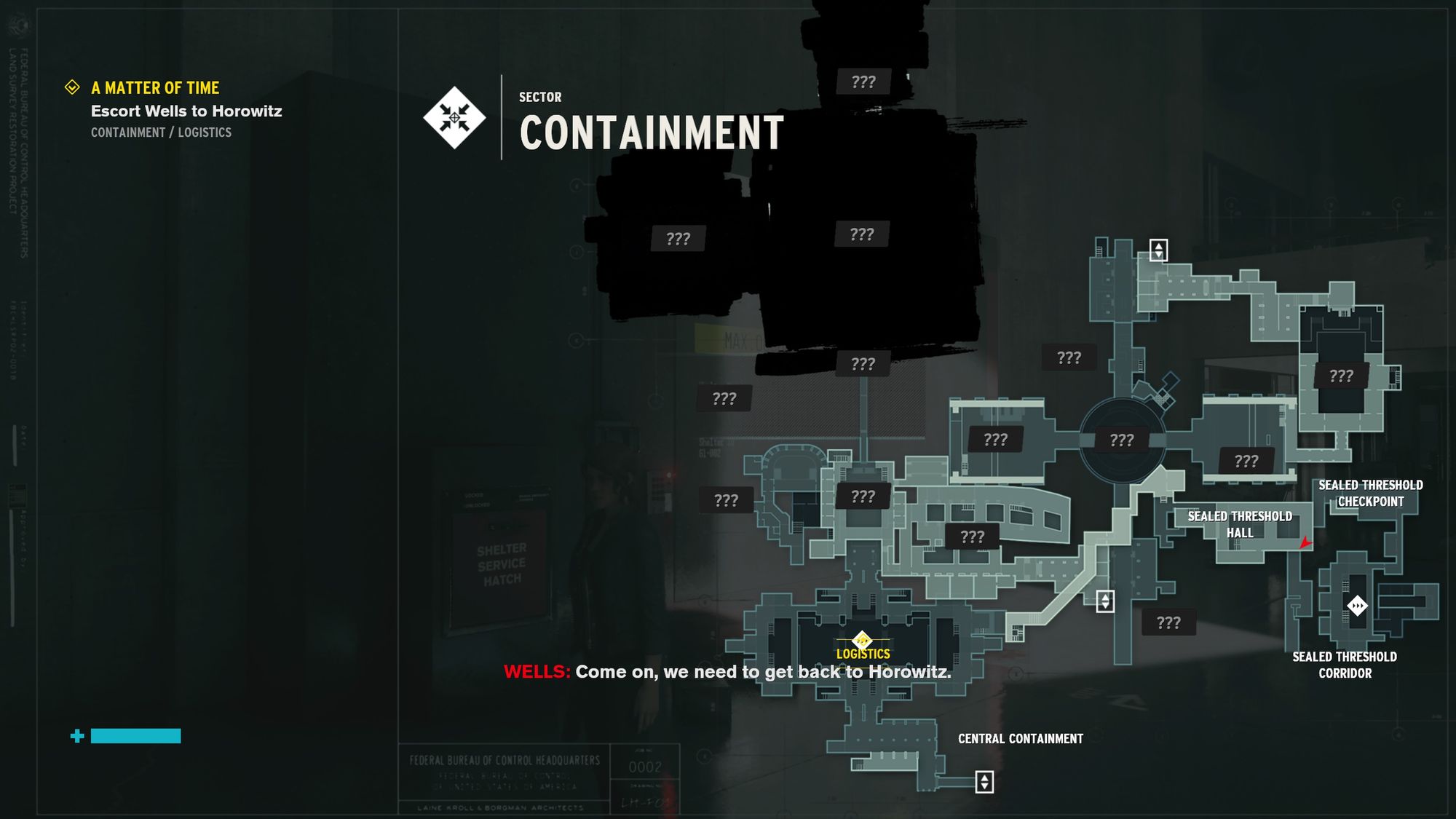
The next big draw of this title is the actual gameplay and combat. As you progress through the narrative, you slowly begin to gain a set of otherworldly abilities to use in your fight against the Hiss. I won't go into detail about what these specifically entail (they're much more fun as a surprise), but instead how well they were implemented. As is customary to video game architecture, you don't get everything all together, right away. The skills you acquire feel organic to your progress within the Bureau as you encounter new enemies that must be defeated by newer strategies. Their animations and effects feel weighted, you can feel the power behind the force when you're unleashing hell on your foe. Taking out enemies with your myriad of options feels.... satisfying, in a weird disturbing way. How they feel results in a wonderful gameplay loop that I was happy to fall into, over and over and over again. As your arsenal slowly broadens and you work to master your array of skills, it helps combat stagnation and becoming repetitive since there are so many ways to go about defeating these otherworldly entities.
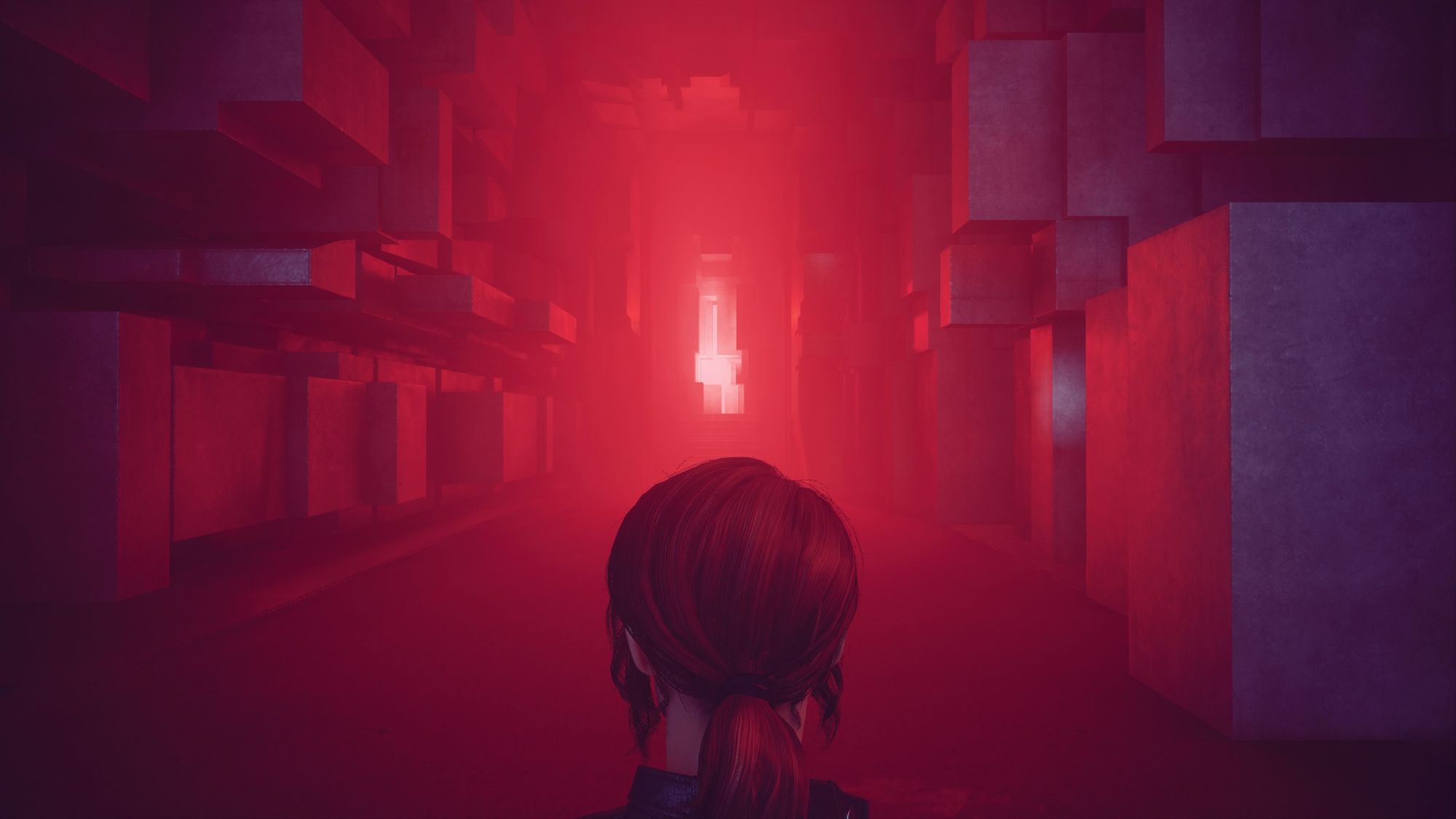
I really enjoyed the concept behind the enemies in Control, namely the Hiss, which uses possessed Bureau agents to fight and spread its reign. Along with standard foot soldiers, and some hardier, armored enemies, you of course have your assortment of mutated and exceptional beings that cross your path. Although there was a decent variety of enemy types, the game does a really good job of keeping them just similar enough. Of course you want to approach certain enemies with different tactics than others, but all of them still felt like they weren't a far stretch from their core conception. There were no Super Wild Mega Mutations that suddenly appeared and decimated everything. They're all interconnected. The bosses are unique enough that they pose new and more difficult threats, but they aren't outside the realm of possibility that, yes, this is a product of the Hiss. All the creatures you come across in your journey feel so integrated within the narrative, the cohesiveness is astounding. Although this whole world and situation is fiction, this helps to add a feel of what I like to call 'plausible reality'. Essentially, if this were to happen outside the realm of a video game, this might just be how it would really go. It lacks the large, out-of-place, shock value obstacles that some games tend to rely on within their framework. Now, that isn’t to say the creatures within Control are not totally bat-shit wild, out of this world. It's more a matter of how cohesively they fit together both in ability and aesthetics.
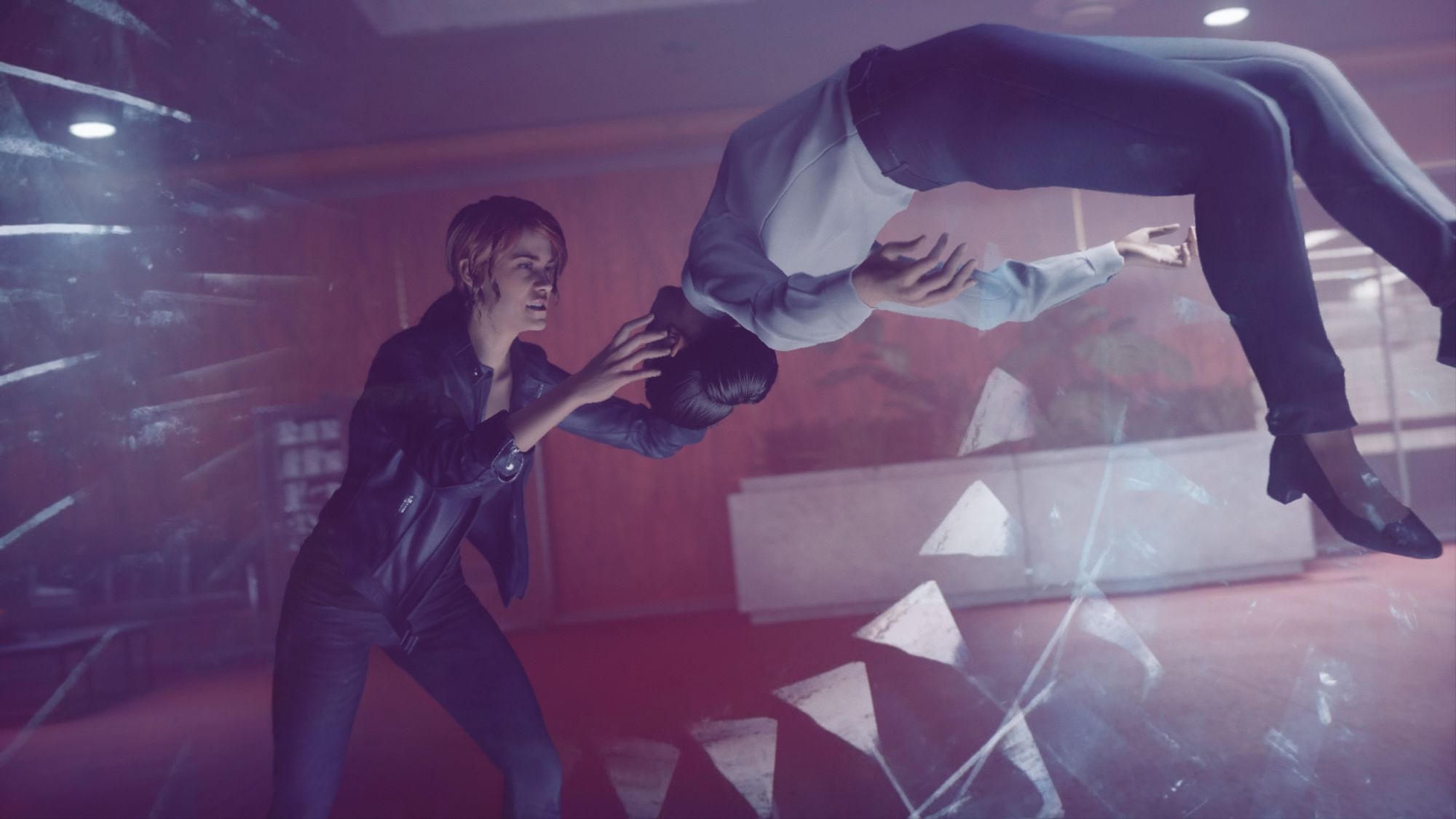
Two notes about the combat, however, gave me pause. The first was the sudden, distinct difficulty spikes. I found there were times when I'd have a great momentum of combat, to suddenly be floored by a... let's call it a mini boss. There seemed to be a distinct jump in difficulty that felt like it came from nowhere. No build up, no signs to prepare; just suddenly getting killed immediately because the newly introduced AI is much smarter, stronger, and devious than the previous ones you've encountered before, which were essentially henchmen. There were some mini-bosses that took me quite a few tries to get through, but to be honest, it was likely my stubborn, bull-headed play style that kept getting me steamrolled. Once I took the actual time to observe the enemy and play a bit more defensively, I adapted and prevailed.
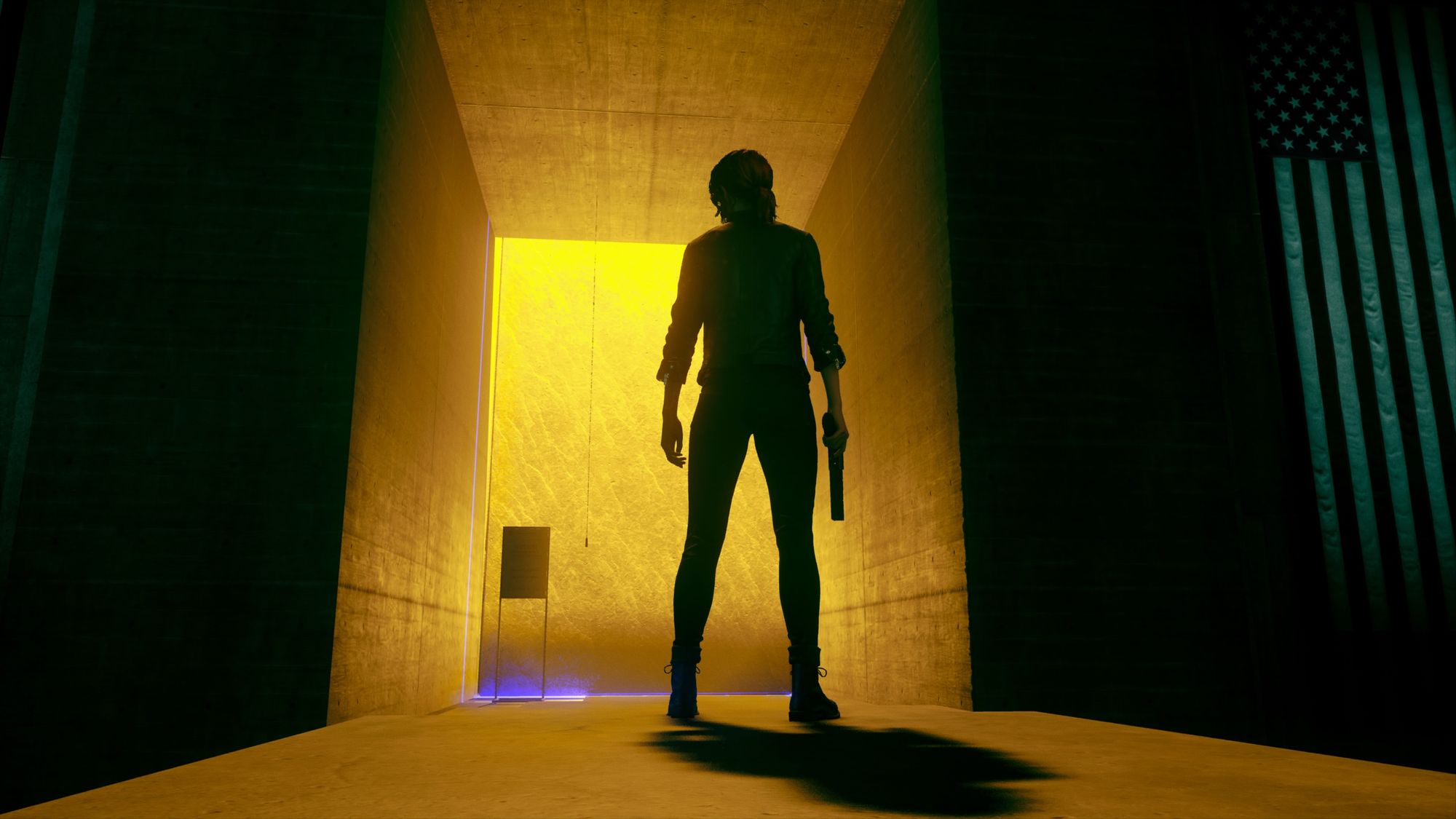
The second thing was the health replenishment system. Just like you'd find in a lot of games, damaging and killing enemy creatures drops small blue orb-like objects that help to restore health. The range however, to pick these up feels very small, so I found myself in peculiar situations where I was one shot away from being taken out, but all the health was in the middle of the area I was battling in, right underneath the still-living enem(ies) I was fighting. I had to decide if the risk to run out and maybe snag a few while hustling to my next piece of cover was worth it, or if I should just stay hidden right now and get shots in when I could. As you can guess, neither was very effective. There was no rhyme or reason to falling into this situation, it just seemed to be when I hit a bad stroke of luck in battle. Some cases, I managed to somehow make it through and succeed, others I would eventually fall, respawn and avoid the situation entirely. It was a very odd circumstance that did eventually pass. As I acquired more abilities, and upgraded them via the skill tree, as well as slowly learned and adapted to the various battle types, I found this situation happening less and less frequently.
Even with those two hiccups, if you could even call them that, Control won my heart over tenfold. I wrapped up my time with the game only after having finished the story, along with all of the post-game content. I was so thirsty for more of this world I had grown to love (and fear). Although I played this title down to the bone, there are still so many questions that remain. Where did Marshall go? What really is the NSC? What’s inside cell 715? Maybe we’ll get the answers in future DLC, but even if we don’t, I wouldn’t change a single thing. I put a lot of time and emotional energy into this title, and after all that time in the Federal Bureau of Control, you do leave feeling somewhat a master of this universe, although deep down you know...
You are anything, but in Control.
